I have a C# object which after JSON Serialization becomes something like this:
var tree = [{
Id:1,
text: "Parent 1",
ParentId:0
nodes: [
{
Id:2,
text: "Child 1",
ParentId:1
nodes: [
{
Id:3
text: "Grandchild 1",
ParentId:2,
nodes:[]
},
{
Id:4,
text: "Grandchild 2",
ParentId:2,
nodes: []
}
]
},
{
Id:5
text: "Child 2",
ParentId:1,
nodes: []
}
]
},
{
Id:6,
text: "Parent 2",
ParentId:0
nodes: []
}];
I want to remove all nodes that are empty i.e. [] from the object or just mark them as null , so my final object will look like
var tree = [{
Id:1,
text: "Parent 1",
ParentId:0
nodes: [
{
Id:2,
text: "Child 1",
ParentId:1
nodes: [
{
Id:3
text: "Grandchild 1",
ParentId:2,
nodes:null
},
{
Id:4,
text: "Grandchild 2",
ParentId:2,
nodes:null
}
]
},
{
Id:5
text: "Child 2",
ParentId:1,
nodes:null
}
]
},
{
Id:6,
text: "Parent 2",
ParentId:0
nodes:null
}];
The list is dynamic and can have many branches.Thanks. My C# class is this
public class Tree
{
public int Id { get; set; }
public string text { get; set; }
public int ParentId { get; set; }
public List<Tree> nodes { get; set; }
}
For creating the tree List Object my function :
var treeItems = new List<Tree>(); //Contails Flat Data No tree
treeItems = SomeMethod(); //To populate flat Data
treeItems.ForEach(item => item.nodes = treeItems.Where(child => child.ParentId == item.Id).ToList());
Now I Get the Tree structure in
var tree = treeItems.First();
I need some logic so that it will put all nodes = null in all nested levels using linq preferably.
So that I can use it bootstrap-treeview datasource.
